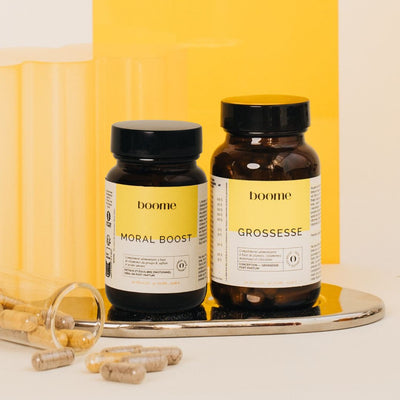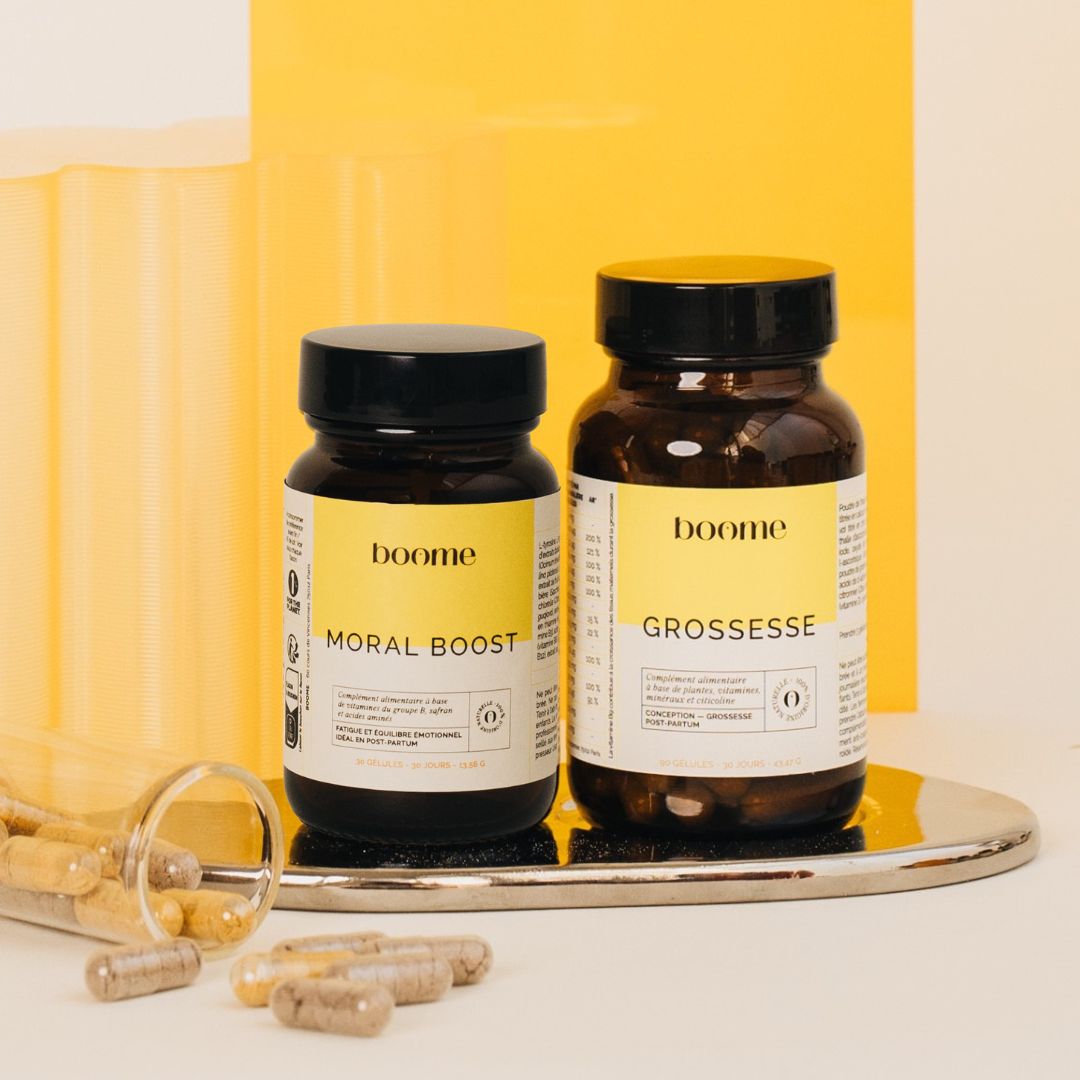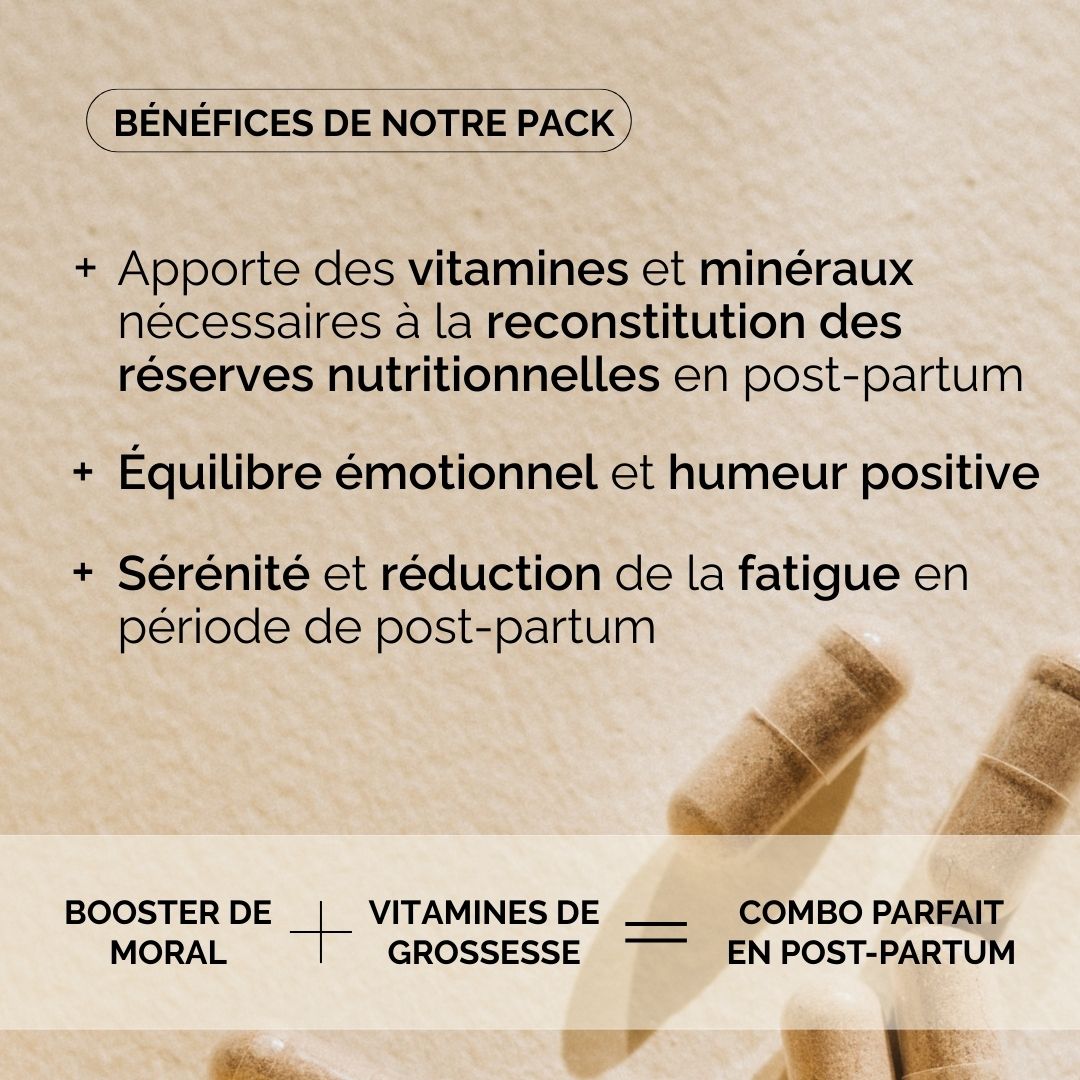
“When will my period return?” “Will it hurt?” These are the questions you’re probably asking yourself if you’re pregnant or have just given birth. And that’s perfectly normal. Because we know that cycles will resume, but not when or how. Don’t worry, we’re here for you! In this article, we’ll tell you everything you need to know about the return of your period, so you can prepare to go through this natural stage with confidence. Let’s go!
What is menstrual bleeding?
The return of menstruation is a slightly strange name for the return of your period after giving birth. The uterus then returns to its normal state, and your cycles... slowly start up again!
What are the symptoms of menstrual bleeding?
The return of menstruation is often confused with the first postpartum period, as its symptoms resemble those of normal menstruation. However, new mothers may recognize it by the fact that it is more intense than their usual period, particularly due to:
- of an abundance of bleeding;
- severe abdominal cramps.
The return of periods can also cause a significant drop in hormones and cause:
- mood swings;
- breast tenderness.
It also often happens that menstruation is confused with lochia. How can you differentiate between menstrual bleeding and lochia? Recognizable by its heavy, red bleeding immediately after birth, lochia gradually diminishes over a period of up to six weeks. Menstrual bleeding actually marks the resumption of ovulatory cycles. It also presents as bleeding... but it announces the return of menstruation!
When is it coming?
If predicting the return of menstruation were as simple as predicting the weather, it would make our lives easier! But as is often the case, it depends on several factors and varies greatly from one new mother to another.
For those who haven't started breastfeeding, the return of menstruation usually occurs between 6 and 8 weeks after the baby's birth. Breastfeeding stimulates the production of prolactin, a hormone that can suppress ovulation and thus delay the return of menstruation. If you don't produce it, it makes sense: your menstrual cycle returns more quickly.
On the other hand, exclusive breastfeeding can delay the return of menstruation. The body produces a large amount of prolactin, which therefore suppresses ovulation. Menstruation may even return several months after giving birth or after weaning the child.
For women who have had a cesarean section, menstruation can sometimes arrive a little earlier than with a vaginal delivery. Since the placenta is removed directly during the operation, the body does not need to expel it itself. The uterus heals more quickly, and menstruation returns more quickly.
When should you worry if it doesn't arrive?
Rest assured: missing your period postpartum is entirely possible and happens frequently. Did you give birth/finish breastfeeding more than three months ago? Did you take a negative pregnancy test? Then try consulting a healthcare professional. This will allow you to assess the situation, make a diagnosis, or reassure yourself!
How long does it last?
Again... it all comes down to individual factors! Breastfeeding, general health... The duration of postpartum periods can also vary from one woman to another. But generally, these periods last as long as a normal period, about four to seven days. However, it's common for the first menstrual cycles after childbirth to be irregular or longer. But with time, I promise: everything returns to normal. The body readjusts, the length and intensity of a cycle regulates itself, until it becomes normal again.
Do you have any doubts about the length of your menstrual cycle? To find out for sure, read our article “ How to calculate your menstrual cycle? ”

Achat express
How to cope well with your return of menstruation?
To help you experience it as best as possible, we answer your most frequently asked questions on the subject.
What sanitary protection should I wear after pregnancy?
After giving birth, you may experience some heavy bleeding. This is completely normal! To avoid unpleasant surprises and discomfort, we recommend using highly absorbent sanitary napkins, such as those found in Mamacitas postpartum kits . When the bleeding is a little lighter, you can switch to period panties. But forget about tampons and menstrual cups for the first few weeks after birth. Too much risk of infection!
What are the risks of getting pregnant before your period returns?
According to the French National Authority for Health , ovulation does not resume until the 21st day following childbirth. However, after the 21st day, there is a risk of pregnancy... and it is not negligible. It is possible to experience a return of menstruation without ovulating, but also to become pregnant before these periods. In other words, ovulation can occur before the first menstrual period resumes.
Abnormalities may also persist in the first six menstrual cycles after childbirth, which may be characterized by:
- anovulatory cycles;
- longer cycles than before;
- irregularities;
- a shorter high temperature phase, among others.
Also, be aware that the later your period returns, the more likely it is that "fertile" ovulation will occur before it returns. So if you're not really up for a surprise baby... Remember to protect yourself!
Pssst... Want to give your body the boost it deserves as soon as your baby arrives? Our postpartum products are made for you!
When to resume contraception after giving birth?
You'll likely be prescribed a microprogestin pill (= with a single hormone, progestin, in very small quantities) when you leave the maternity ward, which you can resume several weeks after giving birth. But listen to yourself, and choose the method of contraception that suits you, when it suits you. Especially if you want to resume sexual intercourse, but avoid another pregnancy. Otherwise, there's no pressure on that front.
What is the menstrual cycle like after the return of menstruation?
Again... It's the lottery! Every woman experiences her own unique cycle when her period returns. Her first period may therefore be irregular, longer, or shorter than before. But it can also be heavier or lighter!
Myths to break about the return of menstruation
Even today, many myths surround postpartum care. Luckily, we're here to clear them up!
The most common misconception is that breastfeeding remains a reliable method of contraception... Spoiler alert: this is false! Although it can delay the return of menstruation, be aware that early ovulation can still lead to pregnancy.
Conversely, the return of your period doesn't always indicate a strong return to fertility. Every woman's body reacts differently, and becomes fertile again... at her own pace.
Finally, we'll tell you again: the symptoms of menstrual bleeding are not the same for everyone. They vary from one mother to another in terms of the intensity and duration of bleeding.
Regardless, menstrual bleeding remains a natural part of the postpartum period. By understanding how it manifests itself, and how it can vary, you can experience this transition period more peacefully!










